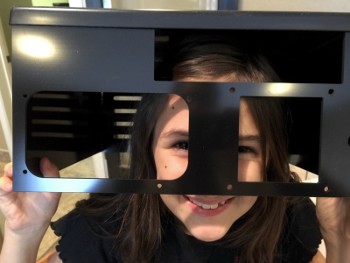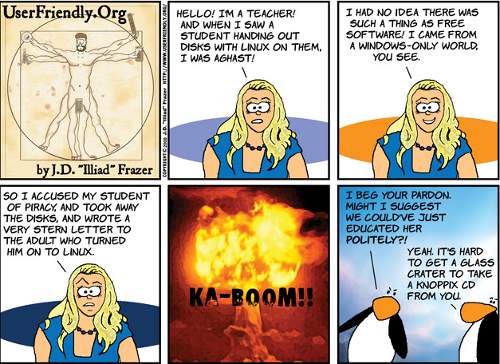Many of you may recall that two weeks ago I was lamenting our loss at Reglue of a valuable hardware donation source. The computers donated by this firm were a bit older, but we had little to do to make them ready. We just installed our KDE Mint respin and sent them out the door. The company had been generous with money donations as well. Depending upon the year’s profits, they either matched employee donations by 100% or else donated $1,000. Losing this asset was a kick in the stomach.

We were torpedoed before I walked through the door.
The CIO had already released a memo to all tech support chiefs, stating that all retiring hardware should be placed on pallets for pick up by a soon-to-be-named reclamation and recycling vendor. The real kick? They’re paying big money to have their stuff picked up and parted out for profit — all in the name of “responsible recycling.” Rick quietly shared with me that the CIO was miffed because we were repurposing their donated computers with GNU/Linux. Because we were removing Windows, he thought the donated hardware was being wasted.
Ken Starks is the founder of the Helios Project and Reglue, which for 20 years provided refurbished older computers running Linux to disadvantaged school kids, as well as providing digital help for senior citizens, in the Austin, Texas area. He was a columnist for FOSS Force from 2013-2016, and remains part of our family. Follow him on Twitter: @Reglue



 But never mind: Something better came along, and the virtual lemons now become lemonade.
But never mind: Something better came along, and the virtual lemons now become lemonade. 
 It’s nice to envision the faces of those I am talking to as I write. I think that drives my personal style of writing. I’ve been told that it could be worse.
It’s nice to envision the faces of those I am talking to as I write. I think that drives my personal style of writing. I’ve been told that it could be worse.







